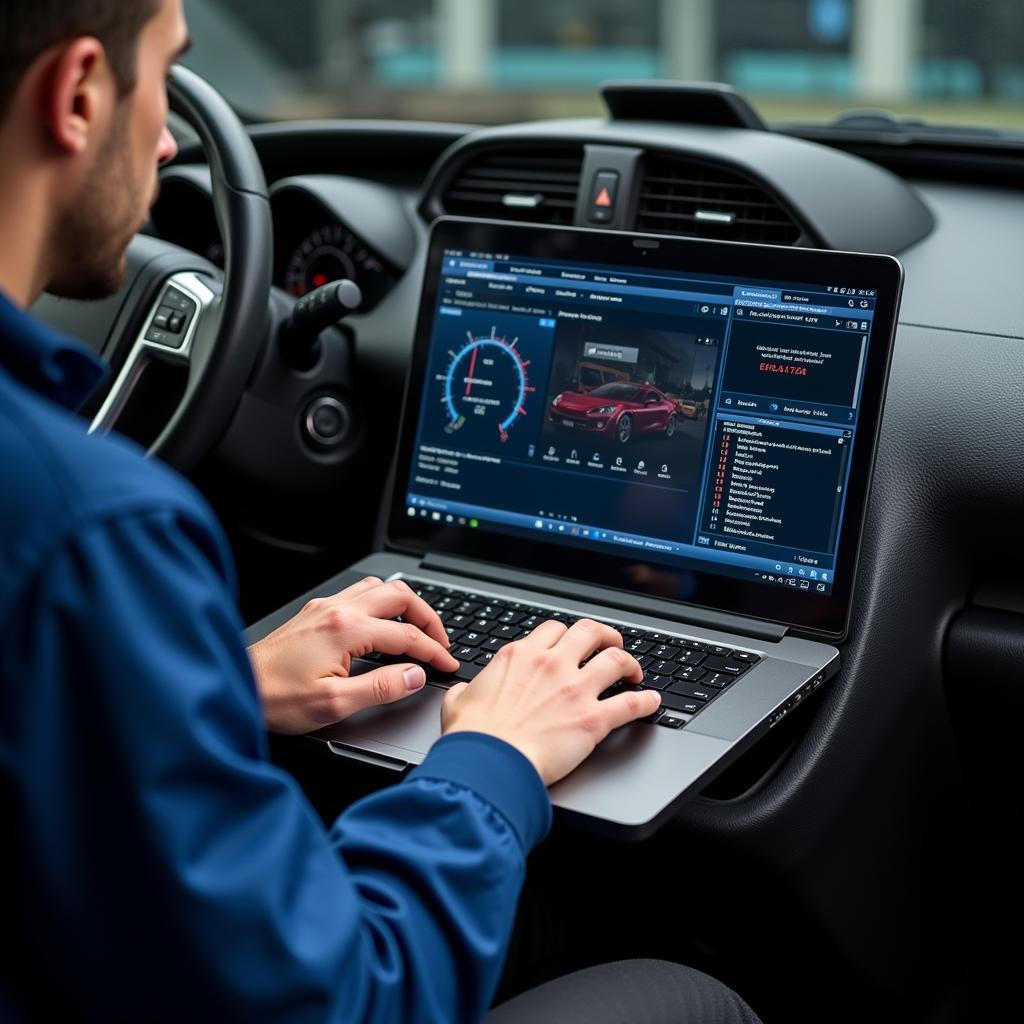A car diagnostic check is like a health check-up for your vehicle. It involves using a specialized tool, called a car diagnostic scanner, to connect to your car’s onboard computer system, often referred to as the Engine Control Unit (ECU). This sophisticated system monitors various aspects of your car’s performance, recording data from sensors located throughout the engine and other critical components.
Why is a Diagnostic Check Important?
Think of it like this: your car’s dashboard warning lights are like its way of communicating with you. When a light illuminates, it’s signaling that something might be amiss. However, these lights often provide a general indication rather than a specific diagnosis. This is where a car diagnostic check becomes invaluable. By retrieving and interpreting the error codes stored in your car’s ECU, mechanics can pinpoint the root cause of the problem with greater accuracy.
What Does a Car Diagnostic Check Tell You?
A diagnostic check on a car can reveal a wealth of information about your vehicle’s health. It can identify issues related to:
- Engine Performance: Misfires, fuel/air mixture problems, compression issues
- Transmission: Gear shifting problems, clutch issues, sensor malfunctions
- Emissions System: Faulty oxygen sensors, catalytic converter problems
- Braking System: ABS sensor issues, brake fluid level
- Safety Systems: Airbag malfunctions, seatbelt sensor problems
- And much more: Depending on the sophistication of the scanner, it can even identify problems with your car’s air conditioning, lighting system, and other electronic components.
 Mechanic Reviewing Diagnostic Data
Mechanic Reviewing Diagnostic Data
How is a Car Diagnostic Check Performed?
The process is relatively straightforward. A mechanic will connect the diagnostic scanner to your car’s OBD-II port, usually located under the dashboard on the driver’s side. The scanner then communicates with the ECU, retrieving stored diagnostic trouble codes (DTCs). These codes are like clues that point to specific areas or components that require attention.
Can I Do a Diagnostic Check on My Own Car?
While professional mechanics have access to advanced scanners with comprehensive capabilities, there are now affordable OBD-II scanners available for personal use. These devices can connect to your smartphone or tablet via Bluetooth, allowing you to read and clear basic DTCs.
Expert Insight: “While basic OBD-II scanners can be useful for DIY enthusiasts, it’s important to remember that they might not provide the same level of detail or functionality as professional-grade tools,” says Jake Carter, Senior Automotive Technician at Carter’s Auto Repair. “Moreover, interpreting DTCs accurately often requires mechanical knowledge and experience.”
How Often Should I Get a Car Diagnostic Check?
As a general rule, it’s a good idea to include a how to run a diagnostic check on your car as part of your regular car maintenance routine. This could be annually or every 10,000 miles, alongside your oil change and other routine checks. However, if your dashboard warning lights illuminate, it’s crucial to get a diagnostic check as soon as possible to identify and address the issue promptly.
Benefits of Regular Car Diagnostic Checks
Regular diagnostic checks offer several advantages:
- Early Problem Detection: Identifying issues early can prevent more serious and costly repairs down the line.
- Increased Safety: Addressing problems related to brakes, airbags, or other safety systems can ensure your car remains safe to drive.
- Improved Fuel Efficiency: Resolving issues affecting engine performance or emissions can optimize fuel economy.
- Peace of Mind: Knowing the state of your car’s health provides valuable peace of mind.
Conclusion
A car diagnostic check is a vital tool for maintaining your vehicle’s health, performance, and safety. By providing valuable insights into your car’s inner workings, it enables mechanics to diagnose and repair issues accurately. Whether you opt for a professional check or use a personal OBD-II scanner, understanding the importance of car diagnostics can help you keep your car running smoothly for years to come.

Leave a Reply